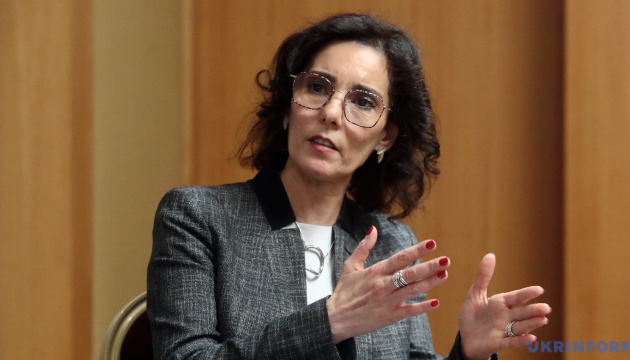
European Commissioner: Part of our strategy is to allocate significant humanitarian aid to education
Two years of the pandemic and almost three years of war have meant that Ukrainian schoolchildren are virtually unfamiliar with the learning process in normal conditions.
European Commissioner for Equality, Preparedness, and Crisis Management Hadja Lahbib said this in an interview with Ukrinform.
“Ukrainian schoolchildren have been impacted by two years of COVID-19 and then, immediately after that, three years of war. It means that some of them don't know what it is to go to school in normal time. They don't know what face-to-face learning is, and this creates a long-term impact,” the European commissioner said.
Speaking about her visit to Lyceum No.2 in Nizhyn, Chernihiv region, Lahbib recalled that she was almost immediately obliged to proceed to the shelter.
“If there is a school offering in-person classes somewhere, it's because there is a shelter. Throughout the war, 365 school buildings have been completely destroyed by the Russians, in total violation of international humanitarian law; 3,700 educational institutions have been bombed or shelled, and now the important thing is to allow children to go back to school,” said Lahbib, emphasizing the importance of shelters for children's safety and the development of new learning strategies to allow young Ukrainians to attend school and study at universities.
The European Commissioner emphasized the necessity of restoring and maintaining the high level of university education in Ukraine, as there is the threat of its decline, including “because of the war-driven brain drain”.
“Part of our strategy in the Commission is allocate a significant amount of humanitarian aid on education in emergencies. Because education is not a luxury. It's a basic humanitarian right that we want to defend,” the European Commissioner summarized.
As reported, the construction of the first underground school in the Sumy region was completed in the Okhtyrka district.
In Zaporizhzhia, the third underground school, designed to accommodate 1,000 pupils, is being prepared for opening.
